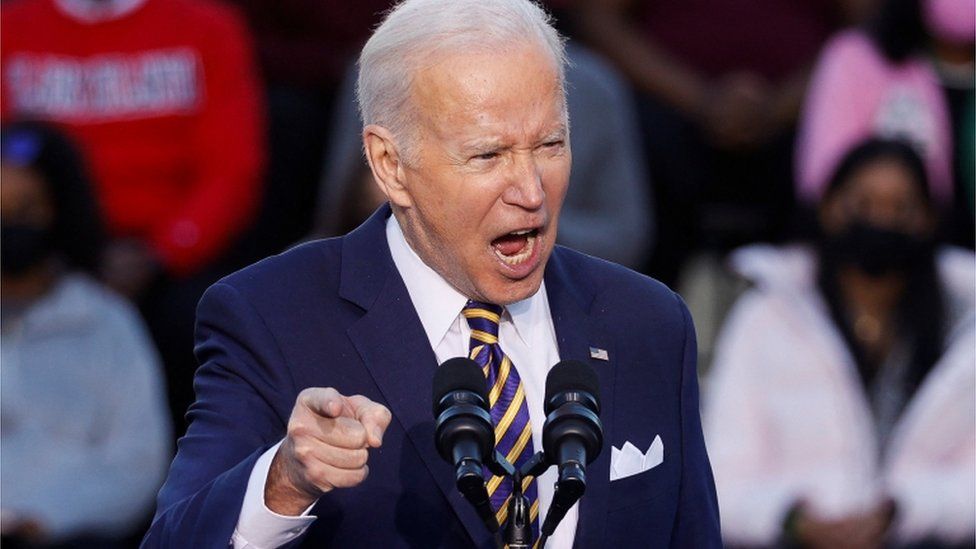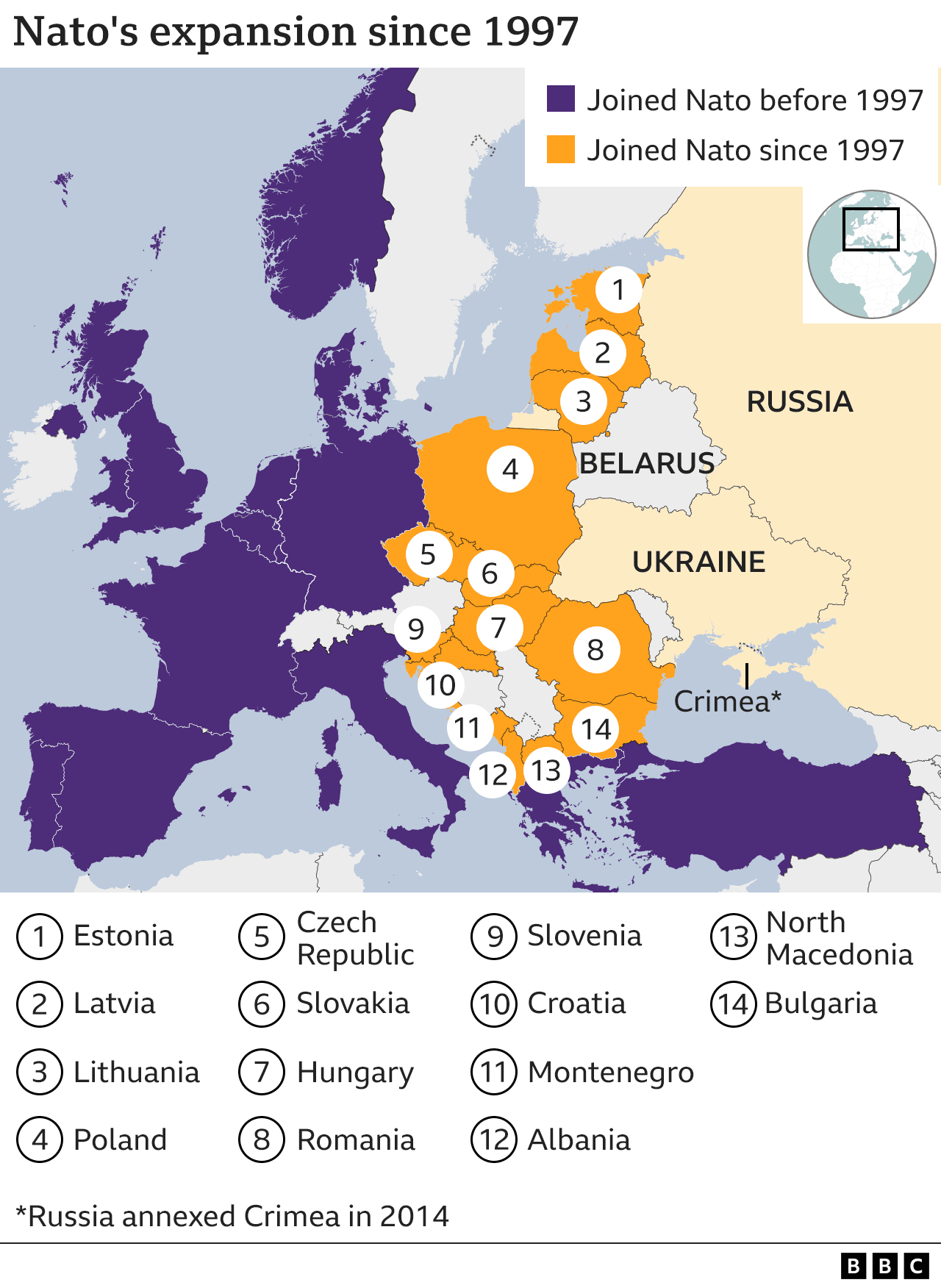
Struggling to pass an overhaul of US election laws, President Joe Biden has called for scrapping a key Senate rule that promotes legislative compromise.
Speaking in Georgia, Mr Biden exhorted lawmakers to advance the bills and herald a "turning point" for the US.
Last week's US Capitol riot anniversary and potential headwinds in this year's mid-term elections have spurred a sense of urgency among Democrats.
But the legislation remains in doubt amid opposition from two Democrats.
The bills - the Freedom to Vote Act and the John Lewis Voting Rights Advancement Act - passed the US House of Representatives last year.
But they have not been considered in the Senate, which is split 50-50 between the two parties. The longstanding filibuster means most bills must meet a 60-vote threshold to pass in the upper chamber of Congress.
"To protect our democracy, I support changing the Senate rules, whichever way they need to be changed, to prevent a minority of senators from blocking action on voting rights," the president said on Tuesday.
Voting reform advocates have expressed frustration that the White House has not acted sooner. Political analysts say Democrats risk losing control of Congress in November's mid-term elections.
Mr Biden said he was "an institutionalist who was honoured to serve in the Senate" for years, but he argued "the threat to our democracy is so grave" that he felt rule changes were necessary.
In 2019, Mr Biden warned that doing away with the filibuster would be "very dangerous", pointing out that his fellow Democrats have used the rule often to block Republican legislation. Back in 2005, Mr Biden said any attempt to eliminate the filibuster was "an example of the arrogance of power".
Former President Donald Trump called for the filibuster to be scrapped when his fellow Republicans controlled the Senate, but then-Senate Minority leader Mitch McConnell refused to go for "the nuclear option", as it is known on Capitol Hill.
On Tuesday, Mr McConnell dismissed Mr Biden's suggestion of some "sinister anti-voting plot" by Republicans as "totally fake".

What do voters think?
Jazmin Kay, 24, is a New York Democrat and the president of youth-voting advocacy group 18by.vote. She is glad to see the president talking about expanding voting access, but wants to see Congress pass legislation that would guarantee reform.
"We're frustrated with all the bureaucracy around voting rights," she says. "If we don't have comprehensive voting rights reform, then we're not able to have a say in what is done in our government. Enthusiasm is waning [among younger Americans]."
Ryan Doucette, 18, is an Ohio Republican and chief of staff to the young conservatives at Gen Z GOP. He warns that one-size-fits-all electoral reform by the federal government is "wildly misguided" and "rooted in cookie-cutter solutions".
"Democrats incorrectly say Republicans are systematically trying to disenfranchise voters of colour, while some outspoken Republicans falsely claim that elections are rife with fraud," he says. "Every community in America faces different voting rights challenges, and those should be addressed via sound policy for each distinct challenge."

Senate Democrats are planning to hold a debate in the next week on scrapping the filibuster.
But two centrist Democrats - Joe Manchin and Kyrsten Sinema - have indicated they will not go along.
Other Senate Democrats, including Arizona's Mark Kelly, Montana's Jon Tester and Delaware's Chris Coons - have suggested they are on the fence.
Republican-run states have introduced restrictions on access and verification since the 2020 election.
They claim widespread voter fraud, though little concrete evidence has come to light.

Will Democrats get voting reform passed?

Joe Biden is making a renewed push for voting legislation, but the prospects for success haven't changed much since congressional Democrats first advanced the current package of proposals back in January 2019.
They're dim.
The reasons should be familiar to this White House. Either Democrats need to attract Republican support in the Senate, or they must change the rules to allow the slim Democratic majority there to approve the legislation on its own. Neither seems likely, no matter how many speeches Mr Biden gives.
Mr Biden's Georgia trip could simply be an attempt to satisfy restive members of his party's base, who believe the president is not doing enough to promote what they see as the most important issue facing the nation - and their party - today. But the outlook for success there doesn't look great, either. Some prominent voting rights activists are giving the Atlanta event a pass, viewing it as too little, too late.
Even Stacey Abrams, the Georgia gubernatorial candidate and tireless advocate of Democratic reforms, was absent, citing "scheduling conflicts".
Mr Biden may describe the coming voting rights showdown as a national "turning point", but the momentum is currently in a direction Democrats won't like.
https://news.google.com/__i/rss/rd/articles/CBMiM2h0dHBzOi8vd3d3LmJiYy5jby51ay9uZXdzL3dvcmxkLXVzLWNhbmFkYS01OTk1NjA2ONIBAA?oc=5
2022-01-11 23:39:49Z
1222244172















